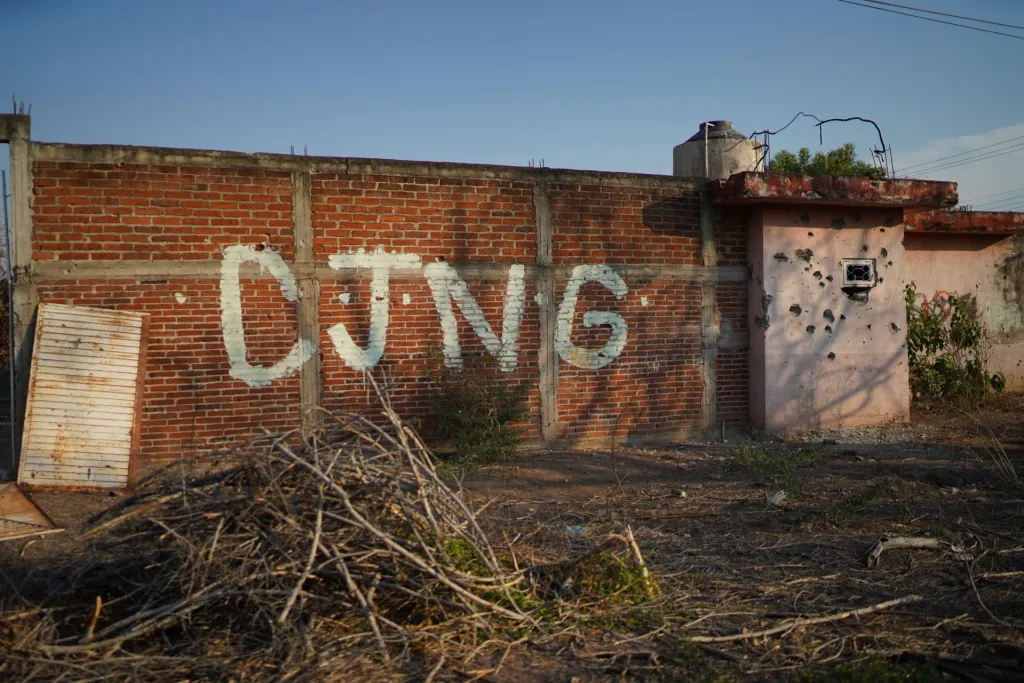This Tuesday, the United States blocked the assets of three accountants and four Mexican companies linked to the Jalisco New Generation Cartel (CJNG), as reported by the Treasury Department in a statement. The authority has pointed out that those accused defrauded American owners with investments, rents or advance fees, impersonating US authorities and law firms. Victims sent payments via wire transfers to US banks or shell companies with Mexican accounts.
“Cartel fraudsters have sophisticated teams of professionals who appear perfectly normal on paper or on the phone, but in reality they are money launderers expertly trained to defraud American citizens,” explains the Undersecretary of Terrorism and Financial Intelligence, Brian E. Nelson, in writing. US authorities have called on financial institutions to be vigilant to “detect, identify and report fraud carried out by transnational criminal organizations based in Mexico.” The people and entities sanctioned this Tuesday are located in Puerto Vallarta, in the State of Jalisco, identified in the statement as a strategic stronghold of the CJNG for drug trafficking and other illicit activities.
The Office of Foreign Assets Control (OFAC) of the Department of the Treasury has imposed sanctions on Mexicans Griselda Margarita Arredondo Pinzón (Arredondo), Xeyda del Refugio Foubert Cadena (Foubert) and Emiliano Sánchez Martínez (Sánchez) for possessing, controlling, directing or have acted or attempted to act—directly or indirectly—on behalf of the CJNG. “These Puerto Vallarta accountants assist in the CJNG’s timeshare fraud activities and are related to previously identified individuals: Arredondo is the half-sister of a senior CJNG commander, Julio César Montero Pinzón El Coches, whom OFAC had already identified since last June 2, 2022. Foubert is Sánchez’s spouse and sister of Manuel Alejandro Foubert Cadena, a Mexican lawyer linked to the CJNG’s timeshare activities and whom OFAC identified on November 30, 2023.
An organizational chart shows the accountants blocked by OFAC, in a government document.
OFAC
The four companies sanctioned are Constructora Sandgris, S. de R.L. de C.V.—supposedly dedicated to wholesale trade—, Pacific Axis Real Estate, S.A. of C.V.; Realty & Maintenance BJ, S.A. de C.V.—dedicated to real estate activities—, and finally, Bona Fide Consultores FS S.A.S., an accounting firm. US authorities have reported that these actions are the result of coordinated action with the Government of Mexico, including the Financial Intelligence Unit (FIU), as well as with US government partners: FinCEN, the Federal Bureau of Investigation, the FBI, and the Drug Enforcement Administration (DEA).
“Too good to be true”
The FBI has reported that between 2019 and 2023, some 6,000 American victims of so-called timeshare scams – companies that offer second homes or tourist homes – have reported that they lost almost $300 million due to these fraudulent schemes. However, the figure is probably much higher, since the authorities themselves believe that the vast majority of victims do not report the scam due to shame and other reasons.
Timeshare fraud scammers may impersonate US or Mexican government authorities, including OFAC. “Spam calls and emails may appear legitimate, but they are actually made by criminals supported by cartels. If something seems too good to be true, it probably is. “The Treasury Department and our partners are deploying every tool available to disrupt this nefarious activity, which funds things like drug smuggling and human trafficking,” the statement said.
Scammers often pose as U.S.-based timeshare agents, attorneys, or third-party sales representatives, then target and defraud U.S. owners in Mexico through complex telemarketing, spoofing, and advance payment schemes. They often last for years. In addition, victims who have already been part of this first fraud are once again captured in revictimization scheme scams, where the perpetrators pose as law firms based in the United States and American, Mexican and international authorities, to defend them from the first crime.
The resources collected, according to the authorities, are laundered in Mexico through shell companies and trusts controlled by members of the CJNG, their relatives or third-party money launderers, such as complicit accountants and other professionals. OFAC has also reported that it has sanctioned several senior officers of the CJNG based in Puerto Vallarta: Carlos Andrés Rivera Varela La Firma, Francisco Javier Gudino Haro La Gallina and El Coches: “These individuals orchestrate murders of rivals and politicians using weapons of high power.”




